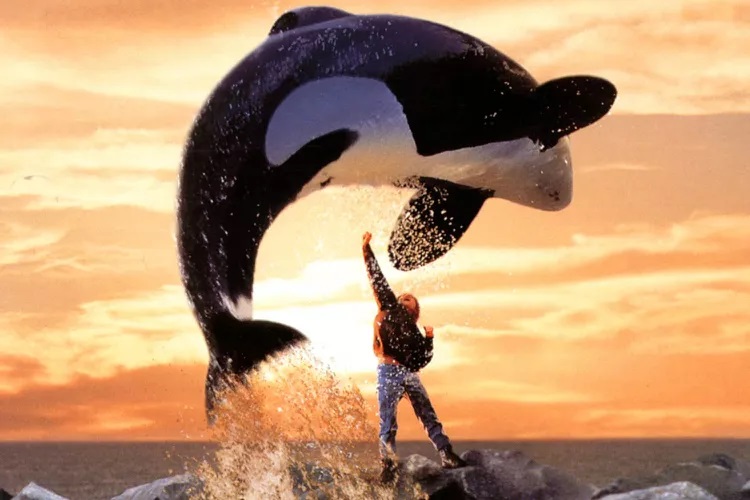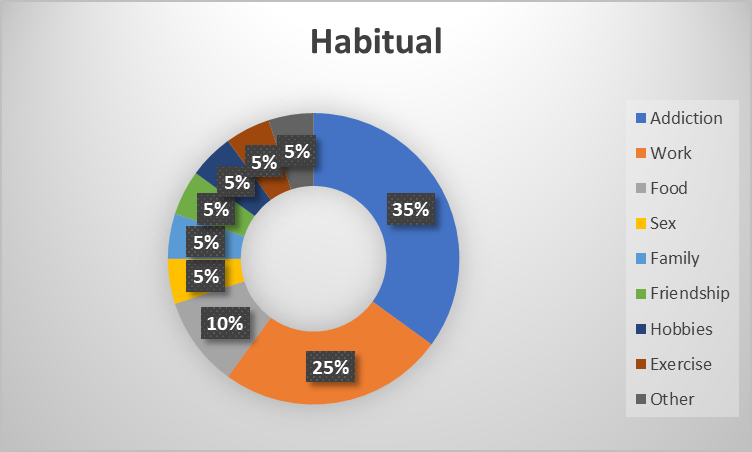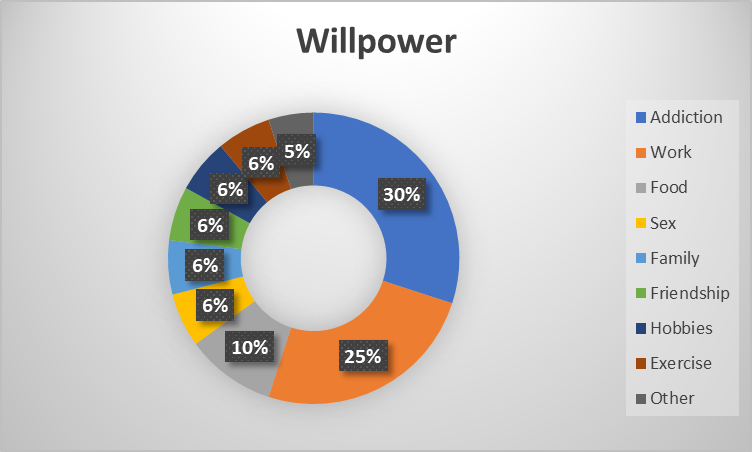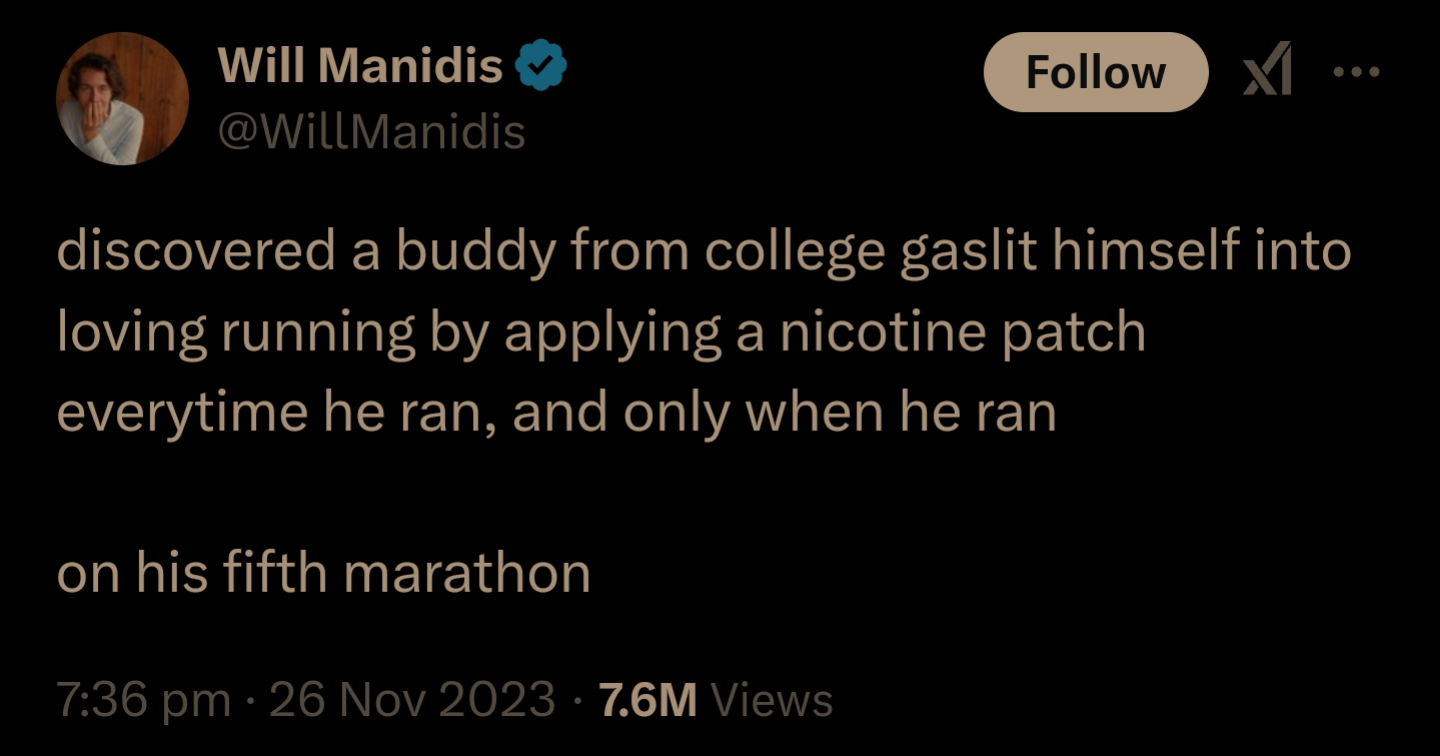Free will

The commonly held definition of free will implies that our conscious mind is fully in control of our actions. At any point in time, we are free to decide exactly what we want to do, and we are fully responsible for the choices we make.
This outdated definition is easily dismissed by materialists, so a new definition of free will that correctly distinguishes between agency and instinct is necessary for the concept to continue to be useful, especially within the legal system.
“Experts in ancient Greek culture say that people back then didn't see their thoughts as belonging to them. When ancient Greeks had a thought, it occurred to them as a god or goddess giving an order. Apollo was telling them to be brave. Athena was telling them to fall in love.
Now people hear a commercial for sour cream potato chips and rush out to buy, but now they call this free will.
At least the ancient Greeks were being honest.”
Related concepts: agency, intentionality, free will, self-agency, determinism, moral responsibility
Incompatibility With the Materialistic View of Consciousness
The materialistic view of consciousness is incompatible with any notion of libertarian free will. Our consciousness is a reflection of the chemical interactions of our neurotransmitters. All of our decisions are deterministic, and if we could accurately model the universe on a quantum level we could predict what any of us will do at any point in time.
This notion does not sit right with a lot of people. Traditional religious morality relies on the assumption of free will to impart personal responsibility on the individual. They reason that without free will there can be no responsibility, which would lead to a society where nobody is accountable for any of their actions. This is, of course, poppycock.
A Useful Definition of Free Will
From a reductionist point of view, all of our thoughts happen due to the movement of atoms acting according to the laws of physics.
From a holistic point of view, ideas that are represented by patterns of neural activity in the brain are able to override our instincts, reflexes, and habits to exert executive control over what our bodies do.
Any proper definition of free will must acknowledge both perspectives.
Free will is an emergent phenomenon where the interplay of ideas and information appear to have a downward causal effect on the actions of our bodies. While information processing in the prefrontal cortex happens as a by-product of molecular activity at the neural level, it provides a method for this information to override the reinforcement based conditioning that determines most animal behavior.
When our actions are a result of the information processing of the neocortex, we refer to it as “free will.” When instinct, emotion, trauma, addiction, disability, extreme circumstance, and other factors cause our actions to bypass the prefrontal cortex, we no longer consider those actions to be freely chosen, and tend to make ethical and legal exceptions to accommodate them.
This definition recognizes the important distinction between actions that are "intentional" versus ones that are reflexive, while still acknowledging the fundamental materialist reality that our subjective mind is a by-product of physical processes.
In summary, an act can be considered intentional or coming from free will if the following conditions are met:
- No outside coercion
- No brain damage, mental disorders, trauma, or addiction
- Sufficient cognitive development to reach formal operational reasoning
- Sufficient time allowed for processing the decision in the neocortex
Someone with all of these conditions may still neglect to consider the possible consequences of their actions, but legally we still hold these people accountable because there is a reasonable expectation that they should have.
Underneath it all is just atoms obeying the laws of physics, but those atoms seem to really care about whether we get this stuff right, so they make us come up with these ideas so we can improve society and hence the probability of our survival. The universe knows we make better decisions with the neocortex than we do with conditioning, and it prefers that we do so.
This video presents a good example of the current debate around the existence of free will. Alex O'Connor takes the reductionist deterministic view, failing to acknowledge that a useful distinction can be made between "decisions" made in different parts of the brain by different neural processes. The compatibilist presents free will as a process that cannot be explained with materialism, or at least he can't himself. Emergent free will that distinguishes information processing in the neocortex from operant conditioning resolves this dichotomy. Just don't watch the debate with the alt-right grifter that the ads promote!
Concepts, Cognition, and the Importance of Ideas
Even if the ideas that form in our minds are simply a reflection of neural activity that we have no control over, the ideas themselves are a reflection of fractal patterns of neural circuitry that interact with other patterns in order to simulate logic and reason. So even if our reasoning is virtual and simply an echo of cognitive processes, it is still a very important cognitive process! How we are motivated to act in the universe can be significantly influenced by the right ideas. The closer to the truth we can make our mental models, the more effectively we can pursue happiness.
Face it, your brain is going to make you think about this stuff whether you like it or not. So you might as well get it figured out so you can dedicate your mental resources to making the world a better place by helping others come to the same conclusions, like a good bodhisattva.
Free Will is a Skill
Free will is a skill. It is knowing how to use your neocortex to manage your animal brain and make it do what you know it should do. Jonathan Haidt uses the metaphor of the Rider and the Elephant to describe the relationship between our idea-based consciousness (the rider) and our instinct and habit driven animal brain (the elephant). Free will is being a skilled elephant rider. Addiction and impulsiveness mean that you have lost control of the elephant.
Habit Stacking and Free Will Hacking
Habit Stacking is a great way to get yourself to start doing the things you want to do by pairing them with something you already do. [1][2][3]
There are a million self-help articles about "life hacks" that have a common theme of using psychology to make it easier to get your brain to make your body do what your consciousness thinks it really should to.
- The Neuroscience of Habit Formation: 8 Tricks to Rewire Your Brain
- The Science of Habit
- How to Rewire Your Brain: 10 Hacks for Beginners
- 15 Ways to Hack Your Brain to Break Bad Habits
Legal Implications
The fact that free will does not exist in reality does not need to take away from the legal responsibility for our actions. We certainly need to rethink our notions of justice when we know that we are all products of our environment. The threat of punishment has proven to be ineffective at deterring crime, since the threat is theoretical until after the crime has been committed and the perpetrator caught. Prevention is far more effective. Take away the conditions that incentivize criminal behavior and people will reflexively avoid it, rather than being forced to choose between ethics and survival.
Free will doesn't exist, but our legal and ethical systems must still assume that it does.
However, our institutions should be built around the assumption that free will does not exist, so their efforts can be focused on guiding people towards best practices by creating incentives and an information environment that makes the best choice the easiest one.
The Hungry Judge Effect describes the conclusions from various studies that show judges become less lenient the longer it has been since they ate a meal. Understanding how our free will is impacted by external factors can help us account for these within the legal system and other institutions to produce more just and utilitarian outcomes.
Free Will and Quantum Probabilities
This is not an excuse to insert quantum woo into the conversation--quite the opposite. Many have suggested that quantum mechanics plays some role in free will. The most reasonable of these are based on the idea that quantum probability leads to indeterminacy, meaning that the firing of individual neurons can only be predicted statistically. This means that we cannot know for certain what someone will do, only that they will choose the one option X% of the time and another option Y%.
In fact, the randomness that leads to the probability-based outcomes is really due to Brownian motion rather than quantum mechanics. Quantum effects are canceled out at the atomic and molecular levels, so they have no relevance when calculating the probability of a neuron firing. A sufficiently complex model could theoretically predict neural activity accurately.
Theories like quantum mind simply insert quantum mechanics into the hard problem of consciousness as an explanation, despite there being no evidence to suggest this.
A course on Behaviorism and an introduction to neural networks is the best way to get a basic understanding of the role that reinforcement and probability have on human behavior and decision making.
Check the Quantum Mechanics page for a discussion of the theory of Superdeterminism and its impact on arguments for free will.
The fact that we don't always know which option we will choose helps maintain the illusion of free will, but it is not the same thing as being able to control the firing of neurons in our brains using our minds. While the complexity of the human brain is significantly higher than that of the rats and dogs used in the behaviorism experiments, the outcome is still the result of a probability matrix constructed based on conditioned responses.
Willpower Doesn't Exist Either

Since consciousness is a reflection of physical processes over which it has no control, the existence of "willpower" is also an impossibility. Thinking about your goals can help modify your behavior slightly, but if you are fighting addiction or other ingrained habits, there is no amount of thought that can overcome the influence of conditioning.

Think of a well-established habit as having a very high likelihood that you will choose to act out the habit at any point in time, let's say it's 35%. Thinking about making another choice, no matter how much you "want" it, is only going to move the needle by a few percentage points. "Willpower" has only reduced the likelihood of the habit to 30%. This only delays the inevitable. Without external reinforcement, the neural network cannot rewire itself.
Willpower is more than enough to decide between non-habitual choices, but it can never override an addiction, or even a long-held habit.
To modify any behavior effectively, the changes must be made to the environment and the incentives that surround you to avoid triggering stimuli and encourage goal-oriented actions. This is how you master the art of willpower.

The Same Arguments But In a Popular Book
Check out Determined: A Science of Life without Free Will for an in-depth look at these arguments by a professional neuroscientist rather than an amateur philosopher. His other book, Behave, is an even more in-depth look at the subject. Or if you're tired of reading, here's some podcast interviews with him.
The materialist perspective on free will is nothing new, but Spalosky's book is one of the best analyses of the subject available and references the latest research. It does tend to focus more on the arguments and implications of our lack of free will, rather than identifying the processes in the brain that we identify with free will and drawing distinctions between these and the less cognitive aspects. Even if our cognition is a by-product of self-organizing neural processes, there is a way to distinguish between the elephant and the rider, and to know when one or the other is in control.
Free Willy
Serial Season 13 tells the true story about how the producers of Free Willy were compelled by the universe to undertake the enormous project of reintroducing Keiko the orca back into the wild. It is a remarkable example of how free will is undermined by the forces of complexity, since the overwhelming public love for Keiko made the impossible task of freeing him inevitable.
Freedom of Choice
The YouTube series Mind Field includes several experiments that demonstrate how our choices aren't really made by us.
Free Songs
One song about having freewill, and one about subverting it.